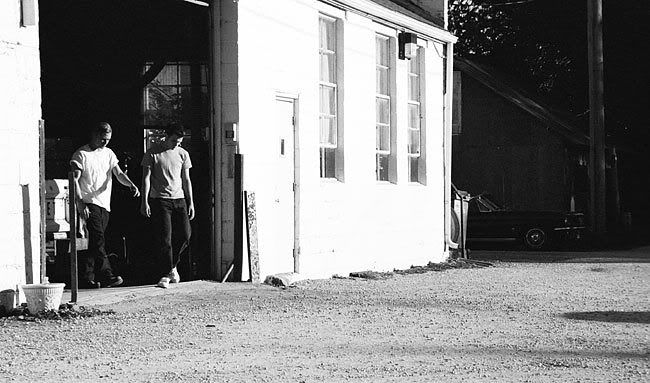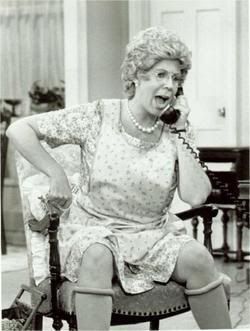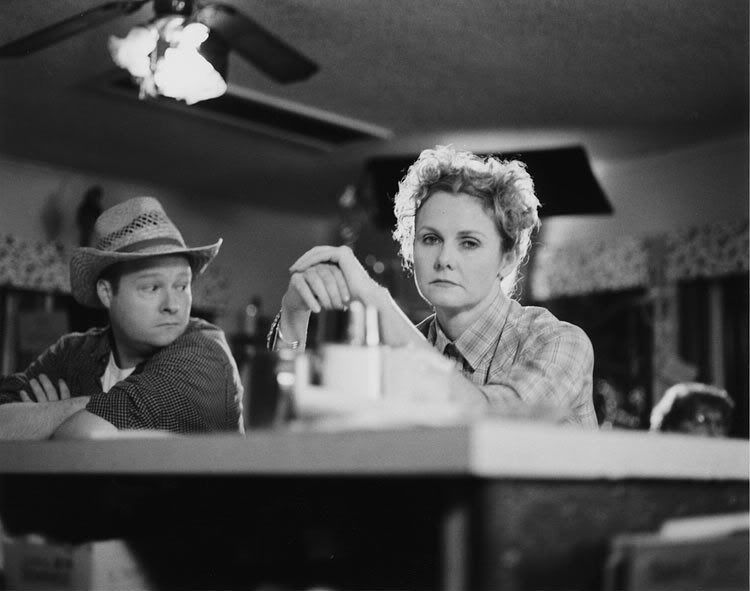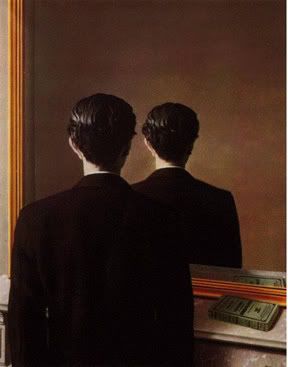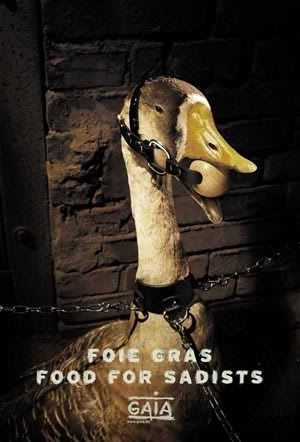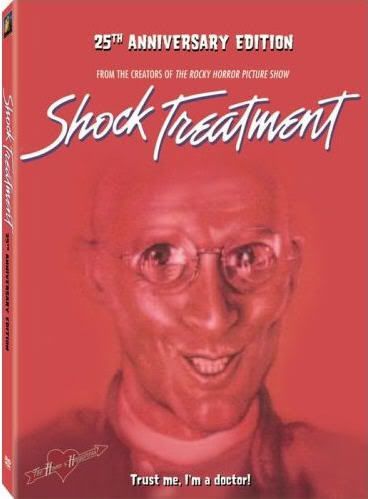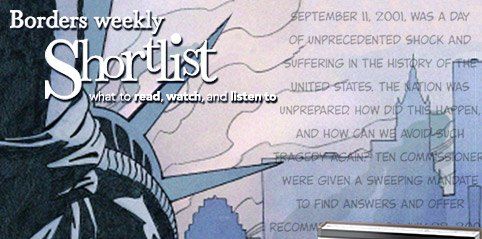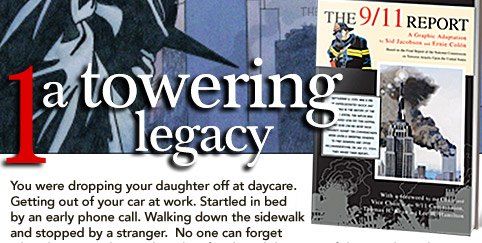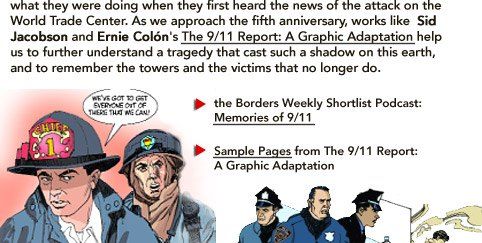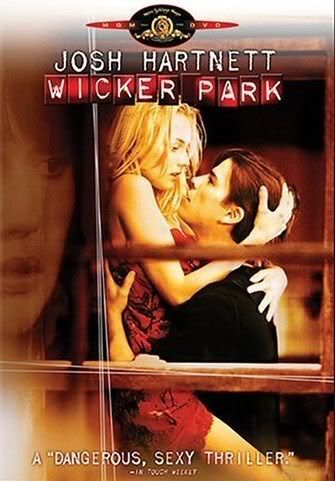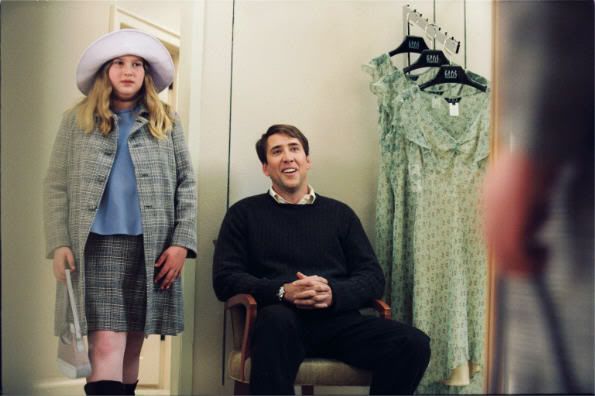
It's a strange world, isn't it?
The recent vitriol spewed at Steve Balderson’s Firecracker resulted in opportunity: The chance to interview
Steve Balderson, extended to me by Balderson himself.
My critique [click here to read it] more or less accused Steve of ripping off
David Lynch, having no original vision, and of basically creating one of the worst independent films I’d seen in years.
The insistence that
Firecracker was merely a pieced together jigsaw work of Lynch’s canon was central to everything I wrote, and the first half of the interview stems from that assumption/assertion.
Lest you think this is some puff piece or an apology, I told Steve the only way this could work is if I approached it from the same place as before – as someone who intensely disliked his film. He agreed, and without further buildup…
Ross Ruediger: Let's get the elephant (man?) out of the room right off the bat, Steve. In your first e-mail to me, you said "I haven't seen most of David Lynch's work. I saw 20 minutes of Blue Velvet when I was at CalArts because I had to dissect a scene for my professor." So what of Lynch's work have you seen?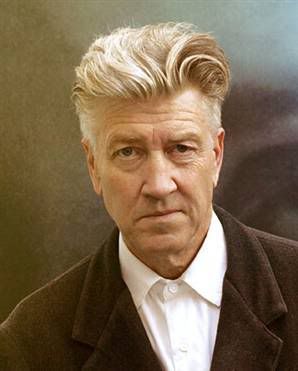
Steve Balderson: I’ve seen
Lost Highway and
The Straight Story all the way through. I’ve seen bits of his other work, but not enough to have a complete grasp of what they’re about.
RR: Which 20 minutes of Blue Velvet did you see?SB: It was more than a decade ago when I dissected
Blue Velvet. The scene was the first moment Jeffrey and Sandy meet. I really loved the symbolism of Sandy appearing out of the blackness, glowing as if she were an angel. I always loved that. I liked learning about the motion of the backwards steadicam, the POV shots of the trees, the street, their dialogue. It’s a very simple sequence and one that I imagine is very good to show young film students. Instead of simply showing the characters standing still and talking, motion was the trick. As long as the camera is moving, we, the audience, feel a sense of going someplace, so we have calmness. When it stands still we begin to have anxiety. Understanding this effect and being able to apply it when you want to create calm or anxiety are good tools for any filmmaker.
RR: You said you'd envisioned a cameo for David Lynch early on in the scripting process, but cut the character before filming. Why would you be interested in using someone like Lynch at all if you weren't a fan of or familiar with most of his work?SB: Because I could foresee people comparing our work. I’m going through a similar thing now. For instance, I’m putting together a screwball comedy starring, among others,
Mink Stole. I love that woman and think she’s divine (no pun intended)! The character she is playing is based on my Aunt, who looks and behaves just like her! Never mind it has nothing to do with
John Waters. But I know precisely what certain critics will say, so the idea has come to me to see about a role for John Waters. It just sort of shuts some people up. But, again, for every person who shuts up there will be another who hollers. So I’m not going to deliberately put John Waters in my movie unless he’s right for it.
RR: Since the release of Firecracker, why haven't you been driven to check out more of Lynch's work, given that your film has been so frequently compared (both positively and negatively) to his films?SB: I watch a lot of films made from the 1930s through the 1960s, but very rarely will I watch a film made in the last fifty years. I’d rather experience a song, go to a museum or watch educational programs on television. I am curious about many things, but when someone says my movie reminds them of another film, I don’t desire to go out and watch that film. I am fully aware of my vision and have total clarity when it comes down to understanding my perspective on any given subject. I have no desire to see how I measure up with other people. I think a lot of people who are insecure with their perception will compare themselves to what other people are doing. The secret is to look inside oneself for the answers, not turn to text books, churches, governments, family or neighbors.
Some will say it’s important to take constructive criticism and to consider what someone else is saying. While I agree it teaches me much about how that person views the world, it doesn’t do anything for me as a filmmaker. You see, if I were to take into account how someone else sees my movie, and what I “could do better” – what’s that person is really saying is “here are the things you can do which will enable me to appreciate your work.” But that would mean I put my vision aside and focus on choices that will please him. By doing so, I’ve denied my own perspective of something and thus will alienate viewers who would have otherwise appreciated what I did originally.
In a broader scope, this is the problem with the world today. We are taught at a very young age to pick something apart and to describe what we would do instead. Or, how would we create something from our points of view. But if we enable that way of thinking, we are also enabling something in ourselves, which gives us self-doubt and fuels the act of second-guessing. Because we’ll always be aware that someone else would do it differently. I think that’s part of the problem. Too often people get used to letting other people think for them.
It is true that no matter what you do there will be a percentage of people who dislike it, hate you, and hate anything you do. If we understand that, we can, instead, focus on being true to our own ideas, without any outside input, and make the work as we see it. There will always be a percentage of people who love what you do and appreciate it no matter what it is. For every person who adores something there will be another who dislikes it.
RR: So obviously you’ve got definite opinions on criticism as an art form.SB: If they are going to continue teaching Film Criticism, or Art Criticism, in schools, the professors owe it to human kind to also teach respect for what it is we’re looking at. Yes, we can do it this way or that way, but the fact remains we’re missing the work if we’re constantly thinking about how we’d change it. Instead of wanting to change something, we might try to learn about what it is. I did not design and build
Fallingwater. I can make the choice to waste my time talking to you about how I’d have done it my way, or I can instead use that time to understand why it was made the way it was made. Maybe I’ll learn something new along the way.
If everyone understood this truth, there would be no conflict – no war. If the Muslims understood that their way wasn't the right way and only way, they would respect that the Jews had their own set of beliefs. And, likewise. But both parties must come to the understanding. If just one party believes it, they will get killed by the other. This can be explained further as art is concerned (to the artist who wants to please the audience): if you please the Muslims, the Jews hate you; if you please the Jews, the Muslims hate you. So what can you do? = Be true to yourself. That's all any of us have.
So instead of watching other people’s movies, or taking anyone else’s perspective into consideration, I’d rather just close my eyes and learn more about my own.
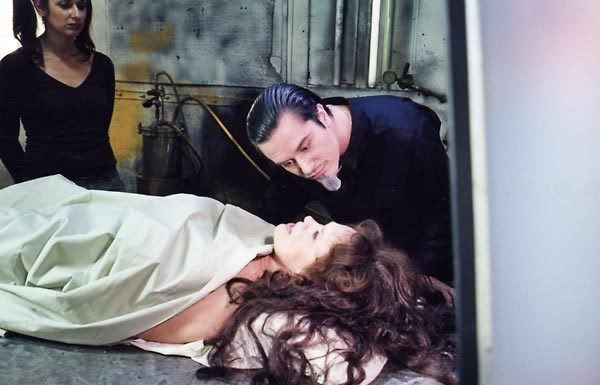
RR: What led you to cast an experienced actress like Karen Black in two major roles, but cast someone like Mike Patton who has no acting experience in two of the other major roles (especially when you had the opportunity to use someone like Dennis Hopper)? I understand that a big part of your vision was the double casting, and that Hopper wasn't right for David, but it seems as if it was a huge gamble to take on someone who hadn't proven himself as an actor.
SB: Any person who can take direction and project emotion can act. It’s as simple as that. Anyone who has ever performed on stage does this all the time. Musicians make fine actors. While some people might think Patton stinks, he did exactly what I wanted him to do. He wasn’t the one making the decisions. For every person who hates his performance there is a person who loves it. I got an email last week from one person who is so in love with Mike’s performance as Frank that he has tattooed his entire back with images of Frank from the film. The guy sent me several shots so I could incorporate them into our new documentary. You’d be amazed!
I picked Mike because he was the right one aesthetically and suited my vision in movement, voice and manner perfectly. There’s a myth in this business that celebrities will help you finance your movie. That isn’t true. Yes, they may help solidify a decent distributor, but that’s about it. Dennis was in the cast for more than a year. When I realized his name wasn’t going to bring us the financing, the only thing left to consider was whether he worked artistically. And, because I couldn’t do the dual roles with Dennis, he had to go.
RR: On the subject of filmic duality, what did you think of Lost Highway?
SB: I went to the premiere of Lost Highway and at the time I remember saying that it was fantastic. I loved the atmosphere of it. I haven’t seen it since, and didn’t do any dissection of it, so I can’t comment on specifics, but I appreciated it very much.
RR: I think you’re really missing out by not watching Blue Velvet, especially if you liked what you saw. There’s a pivotal scene between Dennis Hopper and Isabella Rossellini that Kyle MacLachlan observes through a slotted closet door that is eerily similar to the big scene in Firecracker between David, Sandra and Jimmy – and the ending of your scene is also very similar (in concept) to a exised sequence from Blue Velvet. But then again, if your sensibilities are so close to Lynch’s, do you think maybe you’d ultimately be bored by his work?
SB: I don’t think I’d be bored by his work, or anyone’s for that matter. Perhaps one day I’ll watch David’s other movies and appreciate them, too. But on the other hand, I do a great disservice to myself as an artist by watching other people’s movies—especially ones made by people with similar sensibilities. Inadvertently, when any artist takes in the work of another artist, there will be, even if you are aware to never compare yourself, a slightly unconscious reaction to compare what you are doing to what they are doing. I think that is counterproductive. For instance, say I’m inspired by a surrealist piece of art where there’s a man wearing a giant stuffed-animal costume. Let’s say I wanted to incorporate that idea into my movie. Well, some might say I stole the idea from Donnie Darko, which features a person dressed in a stuffed-animal costume. Or, others might suggest I’m trying to be David Lynch because he did the same thing with Naomi Watts dressed in a bunny outfit.

By focusing on things like that, people will fail to recognize what it is that I’ve done. Never mind I’ve never seen the David Lynch scene with Naomi Watts. Never mind that my inspiration had nothing to do with Donnie Darko. What I think would be more interesting is if one would ask the question: What drives an artist to arrive at a similar conclusion? Where did the choice originate to put someone in a stuffed-animal costume? By answering that question, and appreciating what is on screen all in and of itself, the viewer will get more out of it. The person who constantly focuses on West Side Story being nothing more than Romeo and Juliet will miss something and limit themselves from certain experiences in life. If they make the choice to do that, so be it. I don’t have to limit my experiences just because they are.
I encourage all young filmmakers to stop watching other people’s movies—at least until they’ve made a few of their own. It’s a good way to remain true to one’s own perspective. This goes for any artist. If you’re a filmmaker: read a book or go to a museum, or listen to music. If you’re a musician: watch a movie or go to a museum, or read something. If you’re a painter: go on a trip to a place you’ve never been. Perhaps this is difficult for some people to imagine – especially aspiring filmmakers – but there came a time for me to move past being a spectator into being a creator.
RR: I am not the only person who’s made the Lynch comparisons, although I may be one of the few who was so belligerent with my accusations. There must have been some kind of filmic influence on Firecracker, Steve.
SB: In Firecracker my primary inspiration comes from The Wizard of Oz. For a dreamer and artistic person who grew up in Kansas, you can’t get more personal than that story. There are two worlds in the film with the same actors playing roles in each. One place is shot in black and white and the other in vivid color. One has geometrical simplicity and the other is irregular and misshapen. One world has a kid who is feeling trapped and in the other the kid experiences freedom (though the characters and situations in that place mirror the ones back home).
Again, one can spend all ones time comparing things in life (and, trust me, everything can be found in anything that preceded before it, everyplace else: Firecracker is a direct descendant of The Wizard of Oz, which is a direct descendant of Alice in Wonderland, which, in turn, is a direct descendent of certain dream-like stories Reverend Charles Dodgson, a.k.a. Lewis Carroll, recalled from the Bible.); or one can appreciate what is there, enhance living and continue forward...
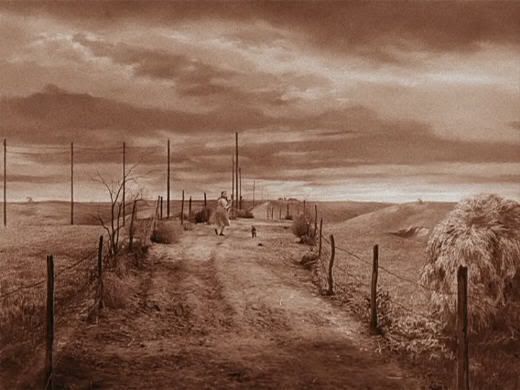
Is it noteworthy that Part One of my interview with Steve ends where the Yellow Brick Road begins?
David Lynch has often cited The Wizard of Oz as being a huge influence on his work – indeed, he even loosely remade the film as 1990’s Wild At Heart. (My simplistic interpretation? Nicolas Cage’s Sailor = Dorothy, Laura Dern’s Lula = The Ruby Slippers & Diane Ladd’s Marietta = The Wicked Witch of the West; take that formula into account and numerous other parallels fall into place.)
What is perhaps even more noteworthy, per my original critique, is that not only is Wild at Heart one of the Lynch works I didn’t explicitly see in Firecracker, but it also happens to be my least favorite work of Lynch’s career (yes…I prefer Dune; David, if you're reading - my sincerest apologies). Readers are free to decipher what that may or may not mean.
I have for years asserted that the The Wizard of Oz is the single most influential film ever made; not the best, not the most important, mind you - but the most influential. I’m seeing less of that these days. Due to DVD and VHS releases, the film isn't treated as the same sort of “event” it was when I was a kid, and therefore isn’t imprinting itself on young minds as it once did (although works inspired by it must surely be, so there's probably some sort of trickle-down effect at work where Oz's influence is concerned).
Going into this interview I believed it would be difficult for Steve to show that he hadn’t plundered Lynch’s work in order to create Firecracker (which isn’t to imply he was under any obligation to do so). While his words “prove” nothing whereas that’s concerned, he has provided a very compelling case for his defense, and as a result I’ve been left in a position that only allows me to take him at face value and believe what he says.
Next Tuesday my Lynch-nuttiness takes a back seat when the Morgue will publish Part Two, "There's No Place Like Home" (click here to read it). Steve will reveal Firecracker’s true budget, his feelings on being a filmmaker in the small town of Wamego, Kansas, why he opted not to score the film with Mike Patton's music, and his reaction to being confronted by my utter aversion to his movie.


